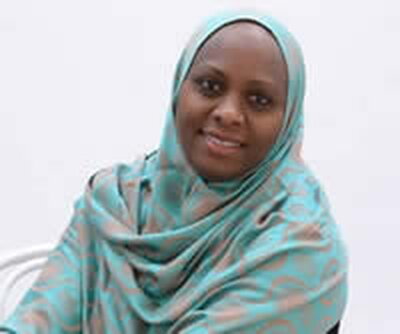

Diaspora Connections
About five years ago, I published a paper titled “Trans-nationalizing the African Public Sphere: What Role for Trans-border Languages?” (Africa Development, Vol. XXXV, Nos 1 & 2, 2010). I presented the same paper in 2008 at the 12th General Assembly of the Council for the Development of Social Science Research (CODESRIA) held in Yaoundé, Cameroon. The study focused on Fulfulde, a cross-border language spoken across several national boundaries in West Africa and parts of Central and Eastern Africa and was an attempt to assess the extent to which languages like Fulfulde have the potential to contribute to the emergence of a transnational public sphere in Africa. I argued for the need to reposition African languages in the ongoing debates surrounding regional integration as we were in the process of re-defining the notion of a transnational public sphere in Africa. Interestingly enough, I was in Cameroon, a country that is part of the geographical space this paper focuses on. Being in Cameroon for a few days gave me the opportunity to interact with people, including Fulbe Cameroonians, in conference rooms, as well as in public places, especially markets, where I spoke to Fulbe traders who spoke different dialects of the same Fulfulde language. These interactions were very enriching, and as I reflect on ways in which I could build on them to carry on further research, they add valuable qualitative data and information.
This past September, I experienced the same type of interactions with the language and its people, far from Cameroon and from the African continent, in Madinah, Saudi Arabia. It was my first time visiting this country and I was there to perform Hajj, the annual Muslim pilgrimage to Mecca. On this occasion, my interactions were with women, not just from Cameroon, but also from other countries in the regions including Mali, Niger, Nigeria, and Chad. In other words, there was a perfect sample for my study; however, the last thought that came to mind during the time I interacted with these women was my research. If these interactions had occurred at a place where I was involved in fieldwork, I would probably call this “serendipity,” but I was in Madinah, in a sacred place and for a much bigger purpose. The following quote is from my Hajj chronicle, which I just finished writing:
“One of the most interesting interactions I had during Hajj happened one afternoon in the Prophet’s mosque. This was our last day in the holy city of Madinah. Our bus was scheduled to leave Madinah back to Mecca right after the last afternoon prayer so we could reach the Valley of Dhul Hulaifa on time to pray sunset prayer there and assume Ihram (sacred state which a pilgrim must enter in order to perform Hajj). I knew I would miss Madinah and decided to stay in the mosque as long as possible that day. Right after the first afternoon prayer, one of the women guides started calling for women who spoke Fulfulde for a lecture prior to their visit to the Prophet’s Rawdah (an area in the heart of the Mosque which extends from the Prophet’s tomb to his pulpit). Hundreds of women from all over West and Central Africa gathered around the very spot I was sitting. I felt connected to other pilgrims from all parts of the world, irrespective of their countries of origin. However, these women and I, besides sharing the Islamic faith, also shared the same language and cultural heritage. Going with them to the Prophet’s Rawdah crossed my mind, but this could take hours, and I could miss my bus. Besides, I visited and prayed there for two nights. Why add to the crowd? I dropped the thought. I chatted with those closer to me as more and more women joined the assembly. We spoke different dialects of the same language, but could understand each other. A few minutes into the lecture, I moved to a quieter and less crowded area of the mosque. An African-American woman came toward me and asked whether I was from the United States. The badges and small bags our travel agency offered us as gifts were part of the things that helped identify us. We chatted for a few minutes, exchanged contact information, and watched birds fly into the Mosque, pecking at whatever they could find on the beautiful rugs, and undisturbed by the movement of people. I will always remember the afternoon in this holy mosque.”
I will always remember Hajj as the biggest international gathering I have ever been part of. The experiences I gained from every single one of the interactions I had with the people I met during this spiritual journey have added tremendously to my understanding of the concept of “diaspora” as a very fluid notion, where factors such as religion, race, nationality, ethnicity, language, and culture, as well as time and space, always bring interesting insights into how we approach it.
I am not sure where these experiences will lead me to in my research trajectory, but here is one final thought that relates to language and code switching: I speak, think, and pray a lot of times in Fulfulde, but I am happy to say that thanks to these diaspora interactions, when I think of the word “prayer,” I can now think about it in Urdu as Namaz while thinking of all the Pakistani friends and roommates I stayed with in the cities of Mecca and Madinah or during our memorable days in our Mina tents or under the sky the night we spent in the rocky plain of Muzdalifah.
Maimouna Barro